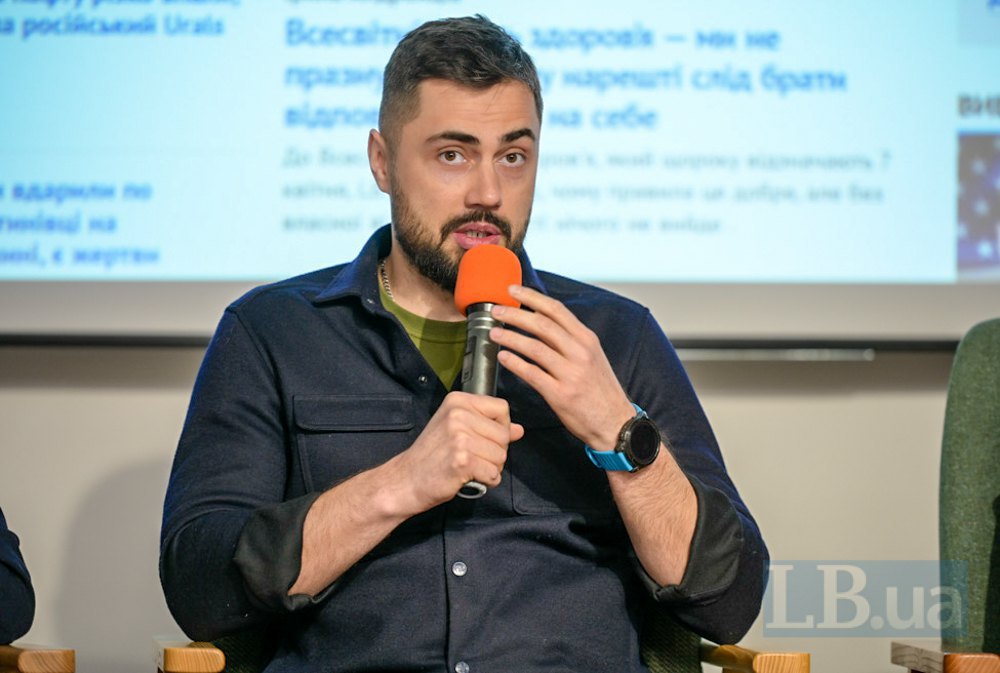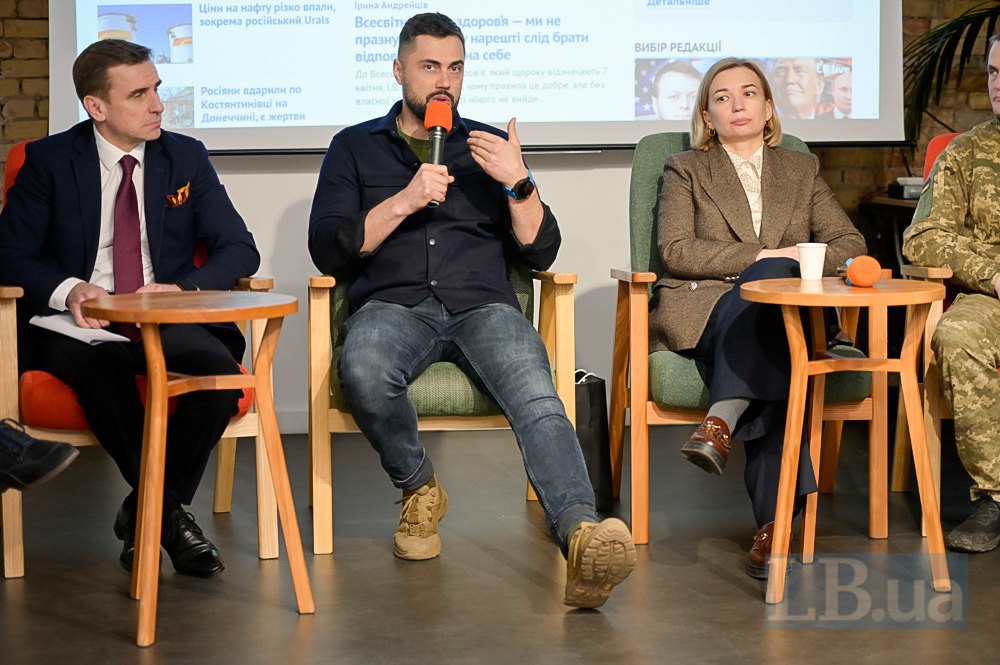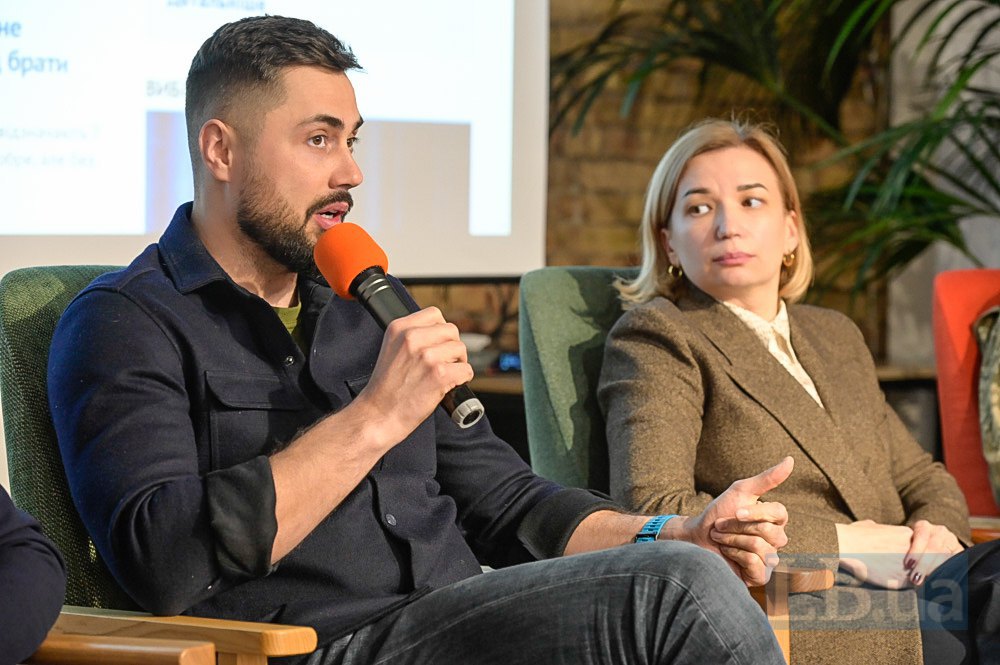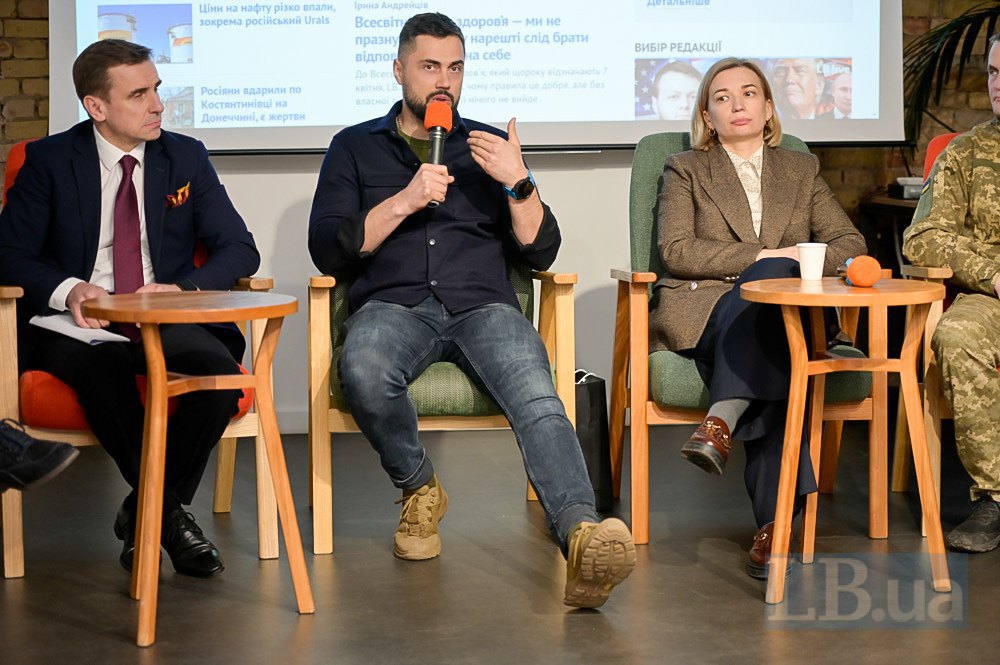
“We’ve been on the first line of defence in the Pokrovsk–Toretsk area for three years now. It’s at the point where it’s the most difficult,” says Yehor Firsov. “And when you come to Kramatorsk and Slovyansk, it’s more or less calm, just like in Kyiv. There are many different coffee shops. You go to a coffee shop and there is a display like a TV, and they always show landscapes from the Maldives, Seychelles, etc. When you look at this picture, this is how you perceive the story of peace. It is very distant – most likely unreal.
You can see on your phone screen that someone is negotiating something and maybe they are about to reach an agreement. But nothing changes for you. For you, there was shelling, trenches, assaults, complicated logistics – and it still remains. And this goes on virtually endlessly.”
Of course, he adds, the Ukrainian military is positive about peace – they are waiting for a chance to breathe – but it is hard to believe in it, because they only read about peace in Telegram channels, while they are constantly surrounded by war.
According to Firsov, the current situation with international ceasefire negotiations looks like “bricklaying” and an attempt to stall for time – “to find our weaknesses and grab more”. He believes that the enemy’s strategic objective is to occupy the rest of Toretsk, Chasiv Yar, and reach Kostyantynivka – which is why Russia is delaying the talks in Saudi Arabia.

“While some people from Russia are coming to Saudi Arabia to talk about peace, other people in Russia are vacuuming up another batch of ‘meat’ in Taganrog, Murmansk, Rostov or elsewhere – to attack us, continue to knock us out of our positions and destabilise us,” the sergeant said.
According to Yehor Firsov, the attitude towards diplomatic negotiations is somewhat idealised and exaggerated.
“People think that they [negotiations] take place in some form of dialogue, arguments, discussions, facts. Most likely, this is not the case. Diplomats come with the cards that the Armed Forces have brought them. If the positions are strong – we are holding the defence, sometimes advancing, piling up, the enemy suffers significant losses – diplomats can talk on equal terms.
If the front is bursting at the seams, we retreat (thank God, the front is more or less stable now), the position of diplomats will be weak. That is, it is a reflection of the situation on the battlefield,” the former MP emphasises.
In this context, he recalled the 2015 Minsk talks, when unfavourable terms were imposed on Ukraine amid the difficult situation in Debaltseve. The same thing is happening today, Firsov drew parallels: “The enemy is trying to find our weaknesses so that we give up, tired of this suffocation, and go ahead and pass unpopular laws on reducing the army, on denazification, on the return of Medvedchuk – only then will he stop the hostilities. And now it is impossible.”
The country will, unfortunately, continue to fight, the former MP is sure – despite Donald Trump’s statements. And despite the tangible fatigue of our soldiers.
“I will speak about my personal experience. I have been in the Armed Forces for almost three years of a full-scale war. Several times I felt that I was done. It was just a collapse. I had zero strength. I remember lying down several times in different periods and feeling like that was it. I was dying. I wasn’t wounded, I wasn’t bleeding. But I had a concussion and such powerlessness that you think everything is lost. You have no strength.
But then – a week, two, three – and you have some kind of internal energetic reincarnation again. Fatigue is left behind, and new motivation appears. This, of course, does not add to your health. Somewhere, the reserves are extinguished, and so on,” a sergeant of the UAV strike company told his story, assuming that every fighter has a similar story. But over time, after being injured or concussed, a person adapts to new realities again, he adds.

“Each unit, each brigade, each person goes through such circles of adaptation. I will speak about my brigade. I have a TRO brigade – Donetsk TRO. When we were put on the first line of defence, we thought that was it. I don’t know – weeks, maybe months – we’ll hold out a little bit, we’ll be roughed up, sorry for the slang, and that’s it. We’ve been on the front line in Donetsk Region, in one of the hottest areas, for more than two years – and we’re still holding out.
The point is that we have internal reserves. We didn’t believe in ourselves, and nobody believed in us. They were giggling, saying that the TRO were mostly miners who, from the point of view of war, had only shovels in their hands. And in war, they are also useful,” the soldier says.
“It’s the same with drones,” the sergeant continues. “When I started the story with drones, I told the guys in the TRO how cool we would be. They looked at me like this… Now we are one of the best platoons. If someone had told me that we would destroy 620 units of enemy light vehicles over the course of time, I would never have believed them. I would have believed it if we had destroyed one. This is about self-belief. But in terms of drone history, I feel that we are at the zenith now. It’s getting more and more sophisticated – technical drones, bombers, kamikazes, reconnaissance drones – and the quality of the units is very high.”
Yehor Firsov did not ignore the shadowy military–industrial complex, which “exists in almost every frontline village”.
“It actually saved us. Every tenth house produces BC. Because more than 80 per cent of targets are destroyed by drones, and the ammunition has to come from somewhere – it is actually made with pens, spraying Soviet ammunition, and attached,” he adds.
“All of this inspires faith and hope that we still have a lot of resources. And I agree that we can increase the Armed Forces many times over. We can improve the organisational quality of the Armed Forces,” the military said.
Speaking about the red lines in negotiations with Russia, Yehor Firsov believes that they are everything the enemy is demanding from us today.
“They are twisting our arms and want us to adopt a number of laws and steps that are unacceptable to us because they distort our future. And I, for one, am fighting for what? If not for the present, then at least for the future – so that I can live in the future a little bit. Not for me, perhaps, but for my children, the future generation. If my country is forced to reduce its armed forces, defend the Russian language, and return Medvedchuk, I know what this state will turn into. A priori, for me and for the vast majority of the Armed Forces, these aspects that are demanded of us are unacceptable,” the military said.

Finally, he expressed his belief that society, despite Trump’s statements about the imminent end of the war, needs to tune in to the marathon. “The big question is whether we are at kilometre 22 or 38 – but I am 100% sure that there is still a long way to go,” he said.
“I don’t know about you, but if I went back to the first day of a full-scale war, if someone had said to me, tapping me on the shoulder: ‘Friend, go without fear, without pain, do your job – at least on 7 April you will meet people and discuss something in Kyiv in the year 25, so calmly, with the sky more or less calm’ – I would not have believed it.
And for me, it is a great inspiration and pride that we have what we have now, and we should appreciate it. This moment, this day – and tomorrow as well. And we must continue to fight,” summed up Yehor Firsov.
Watch the full video of the panel discussion:








